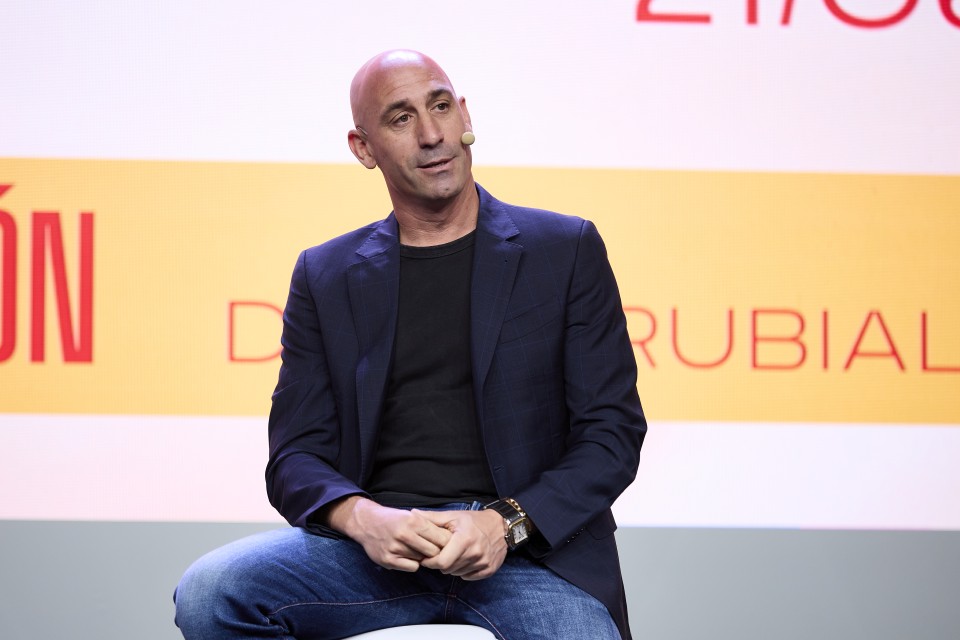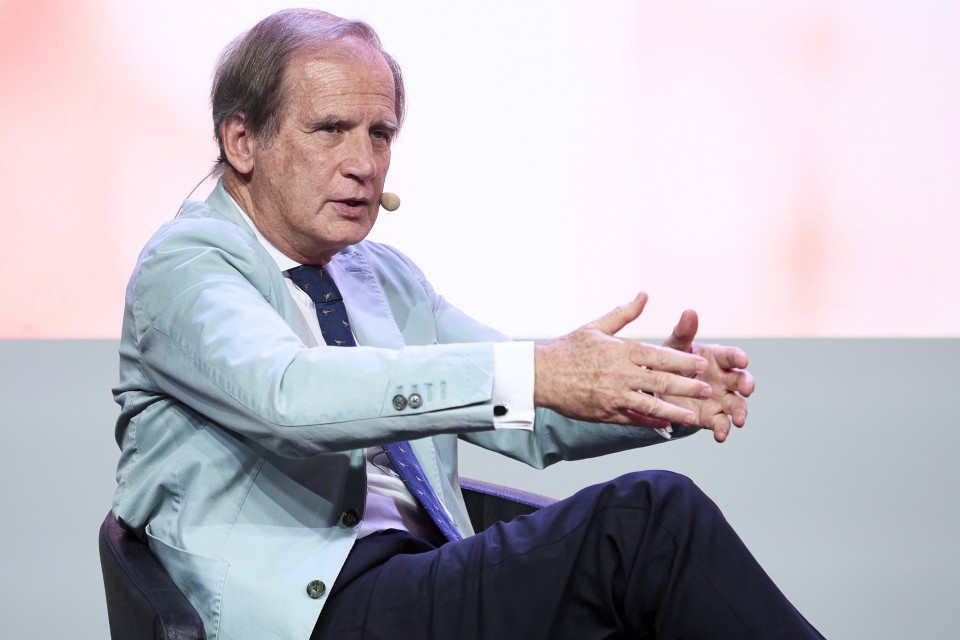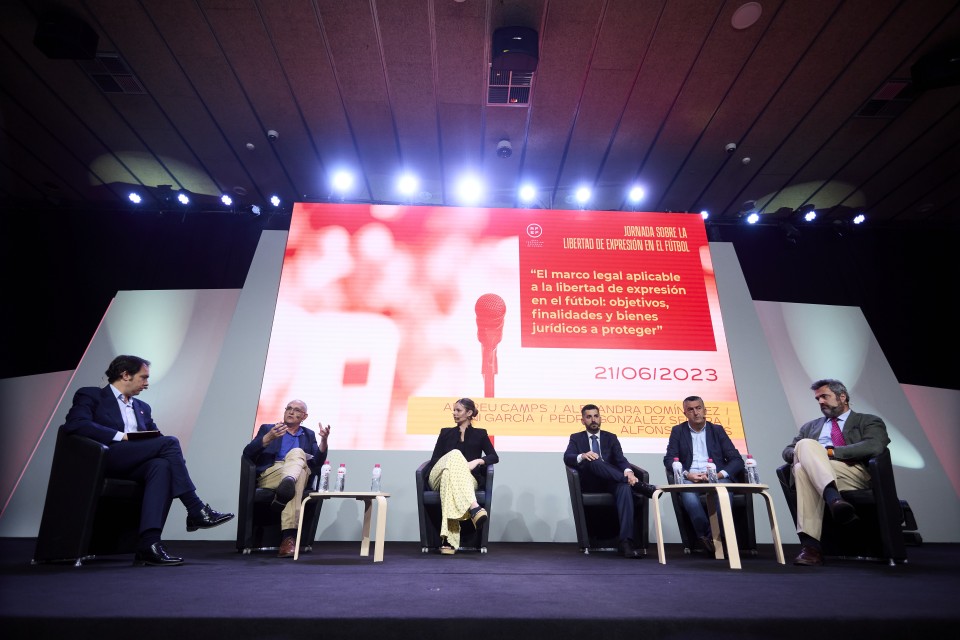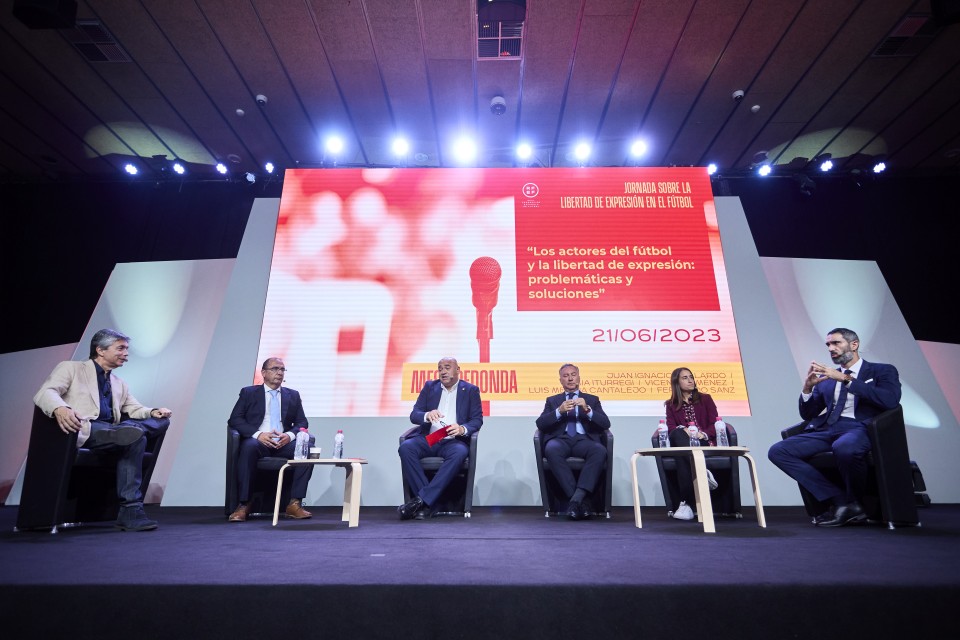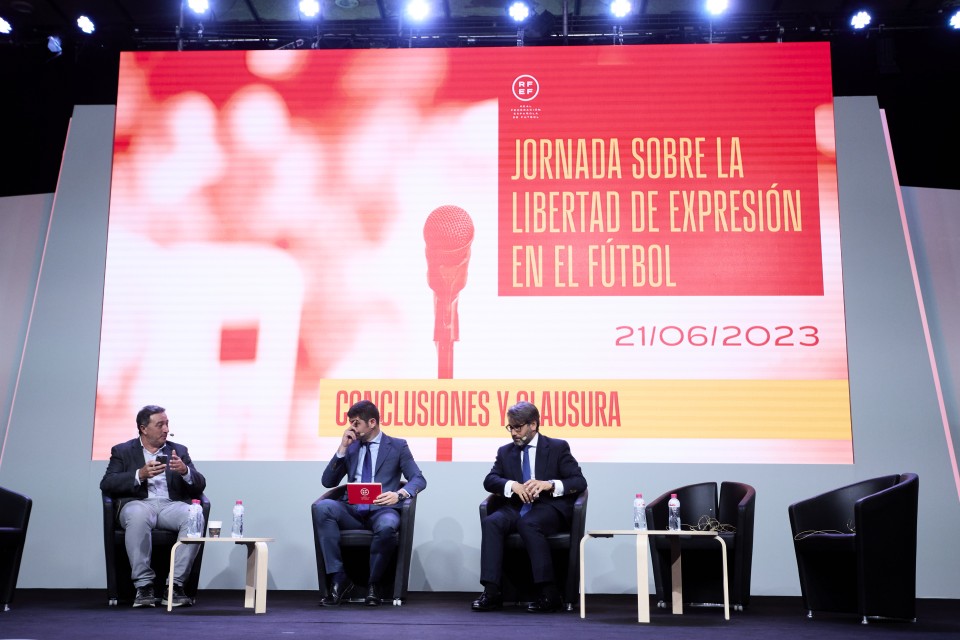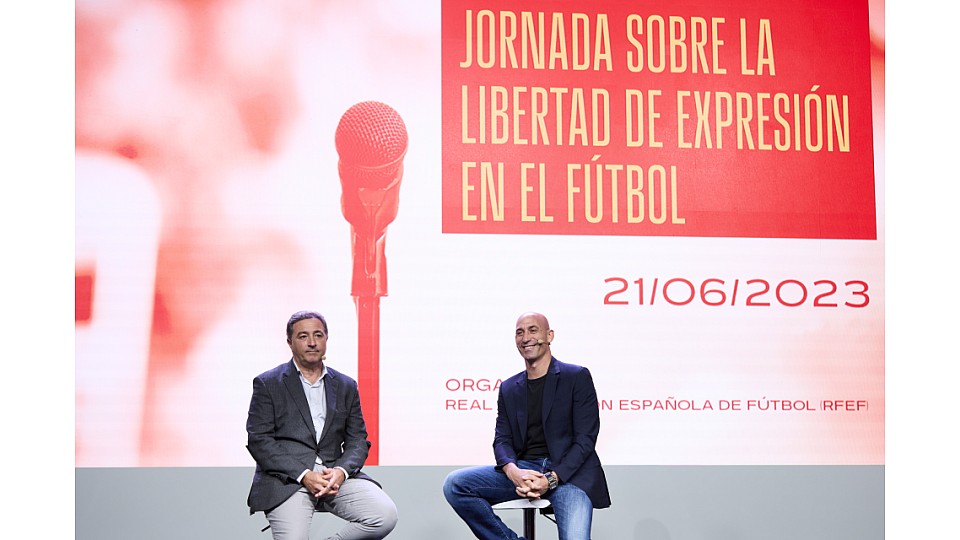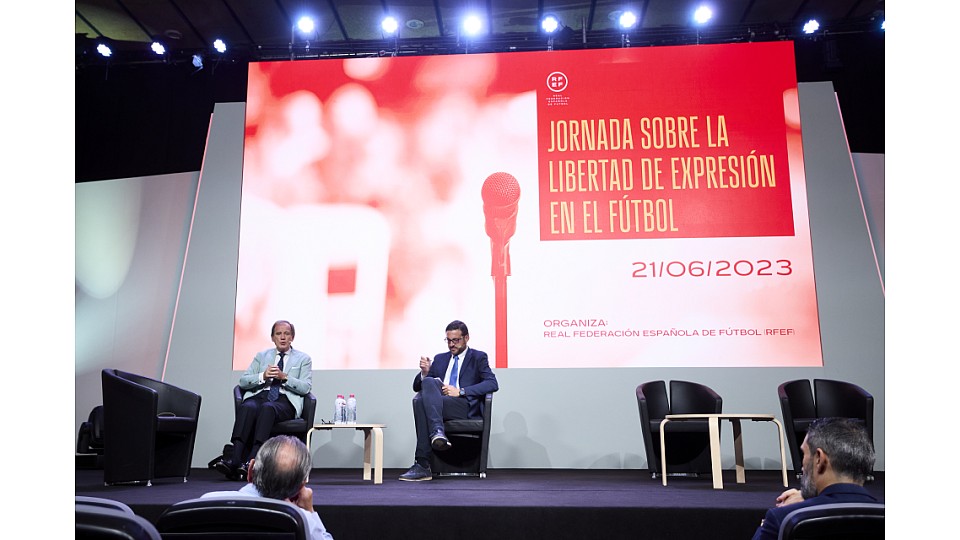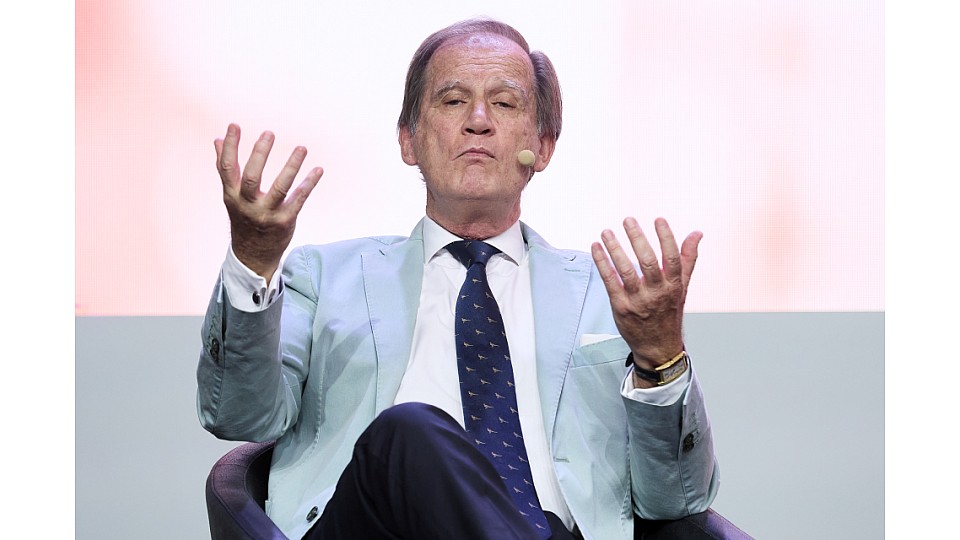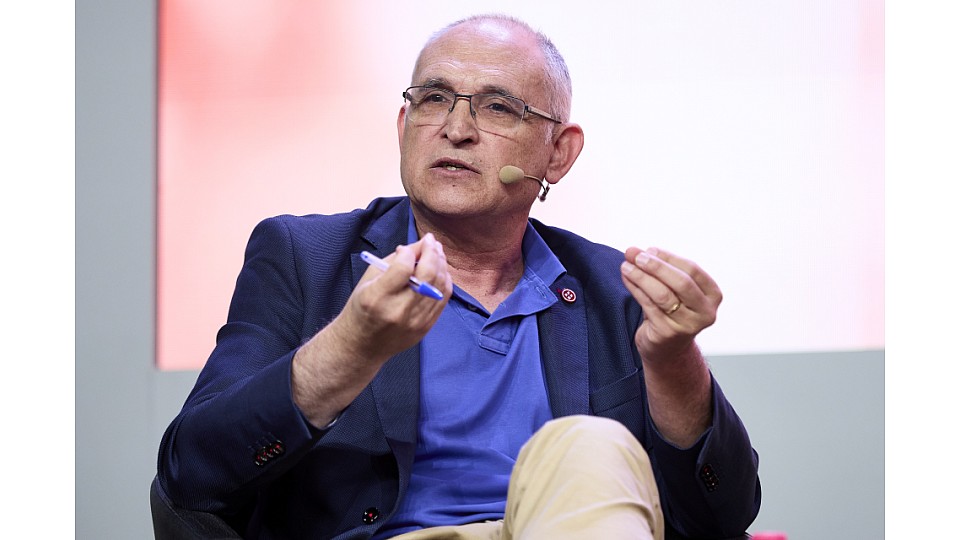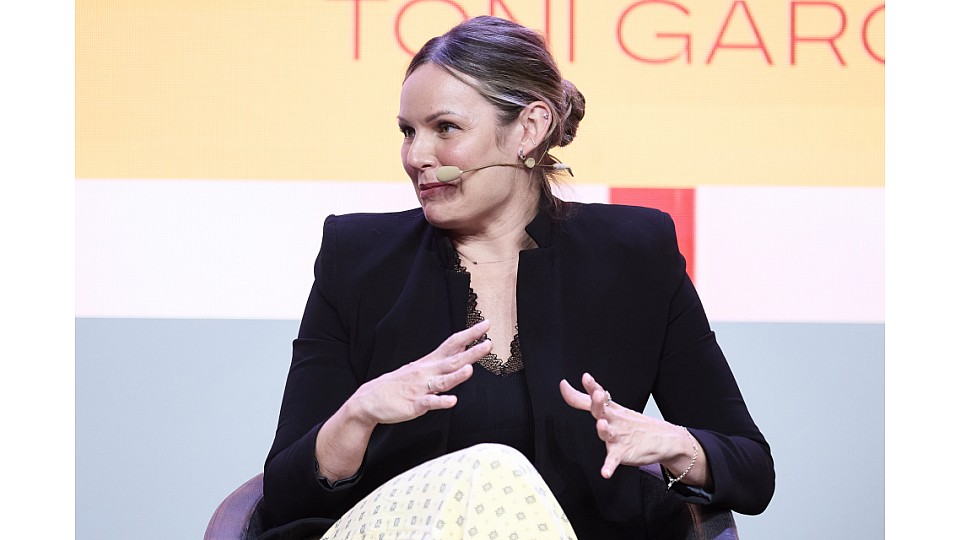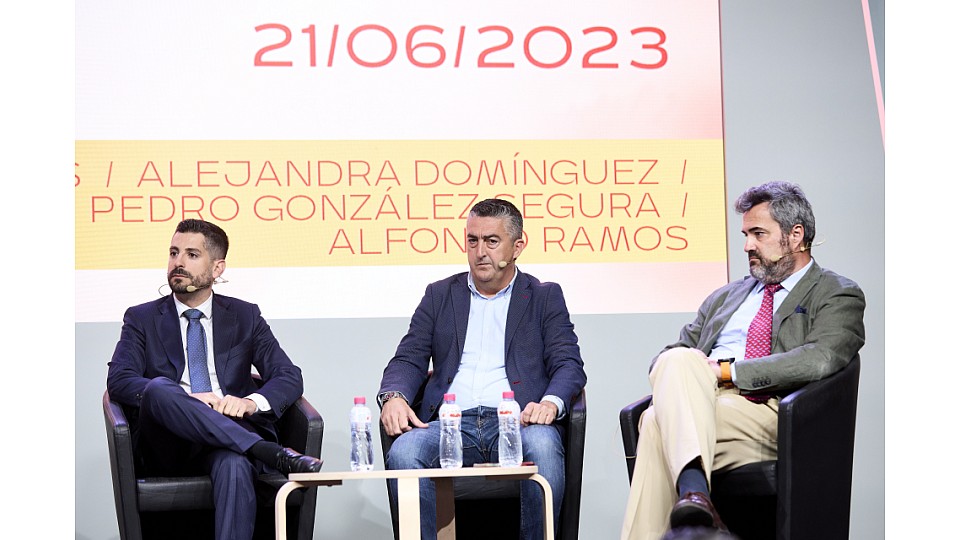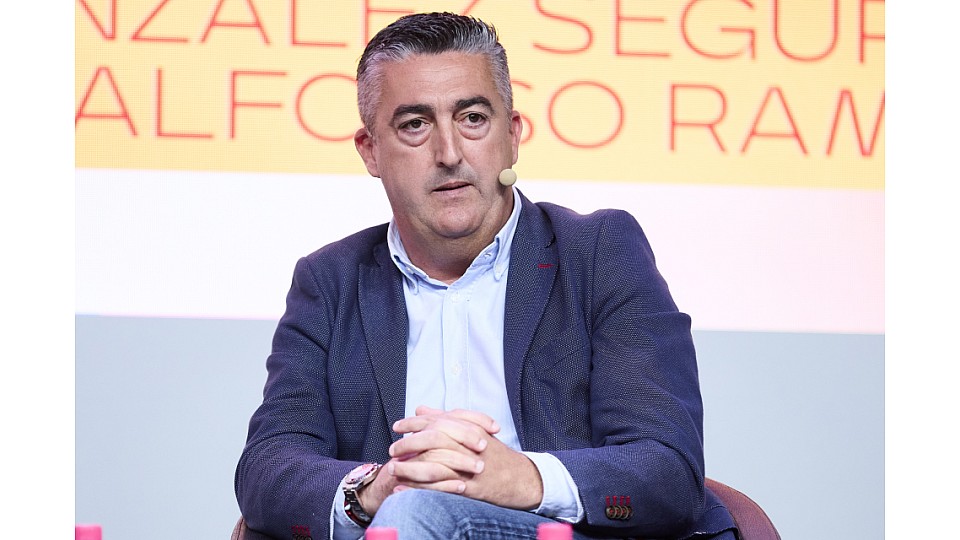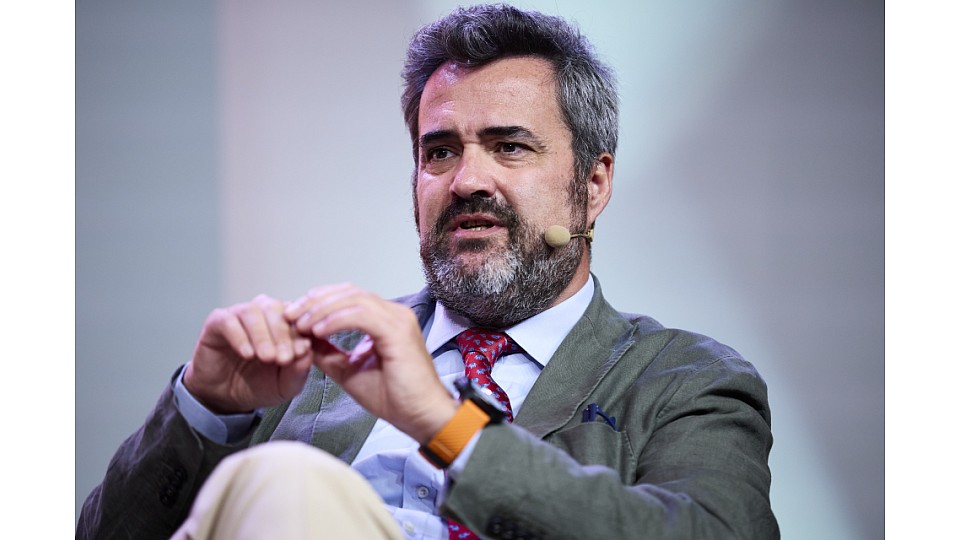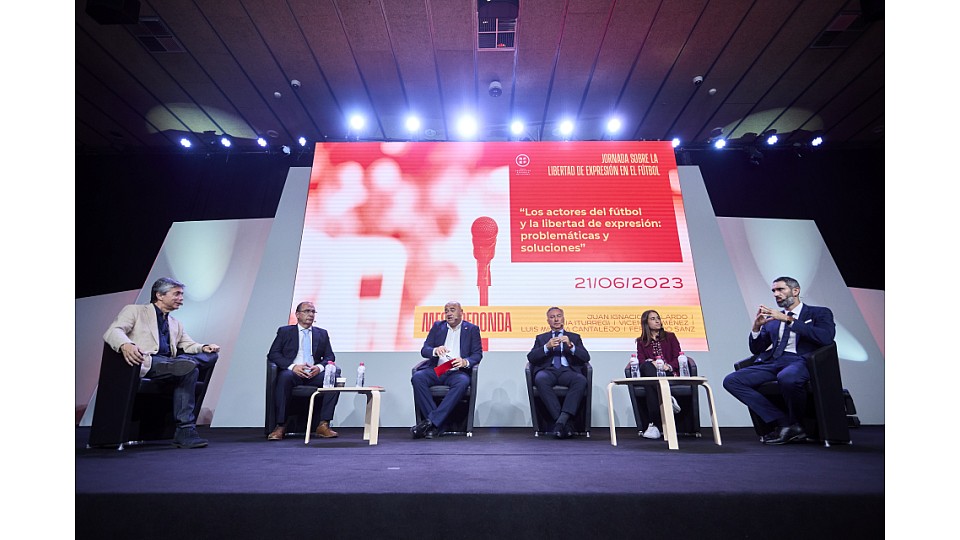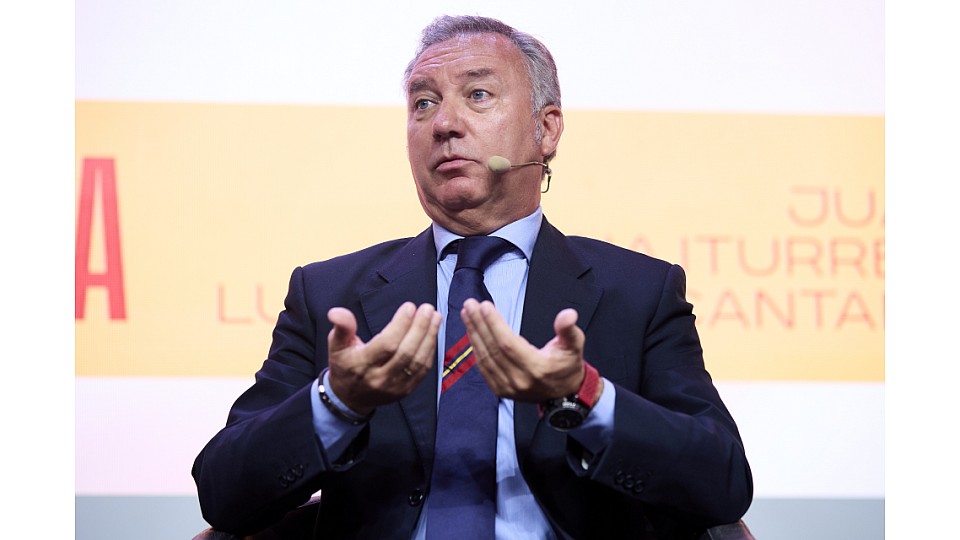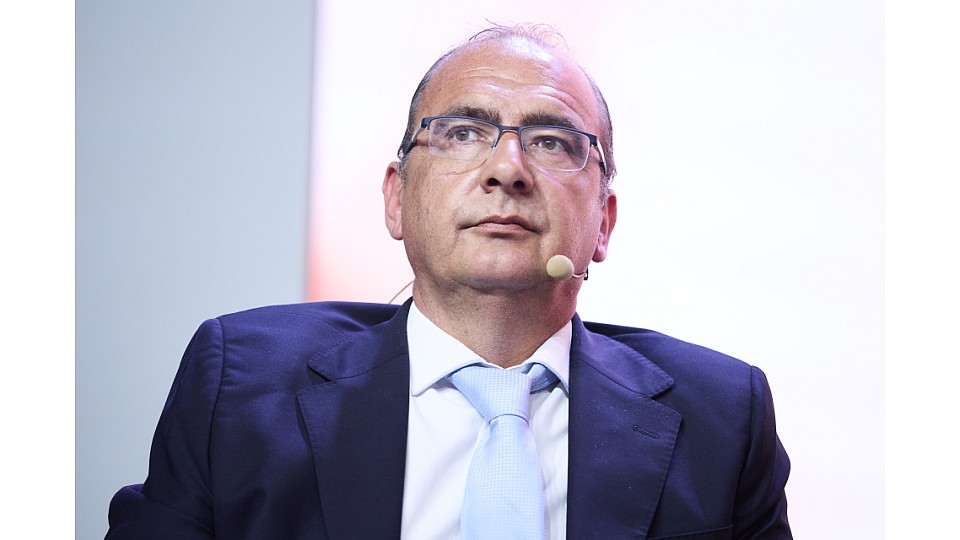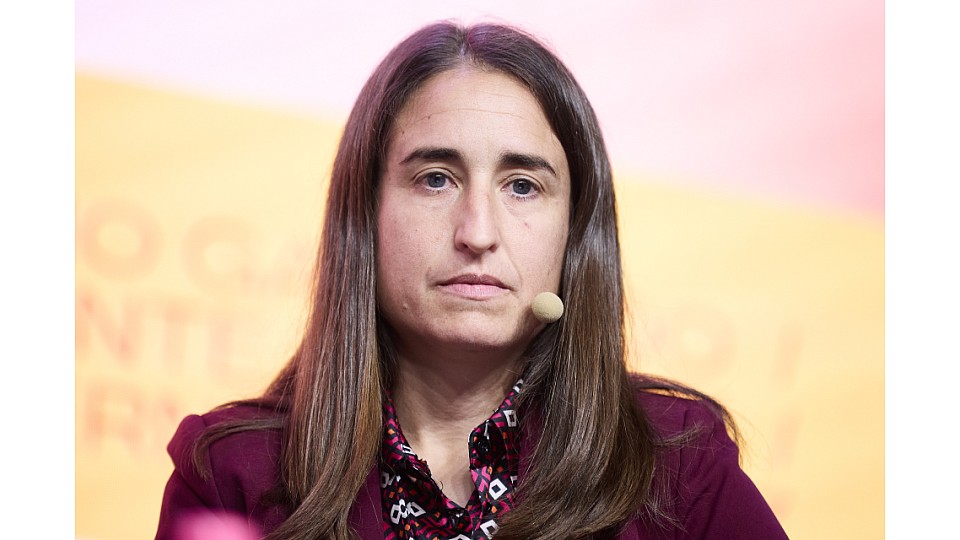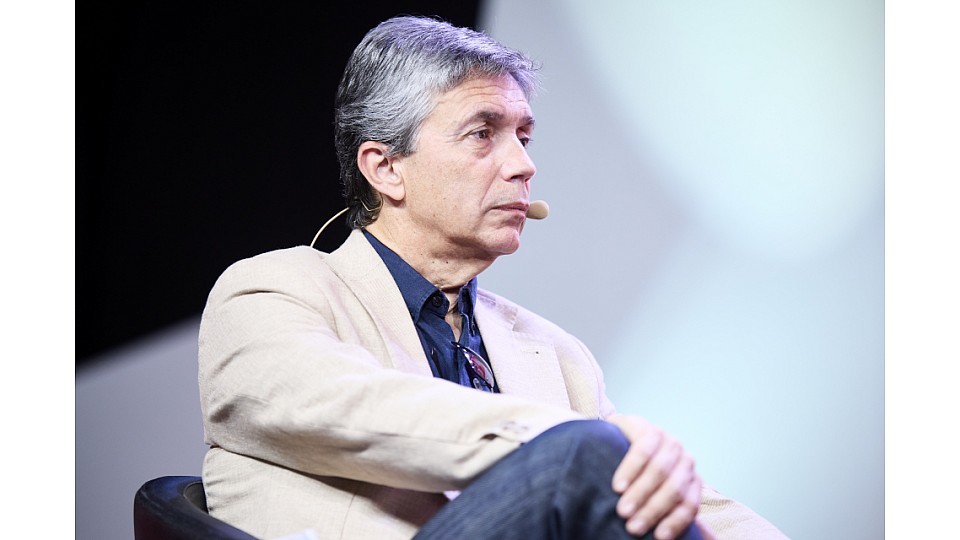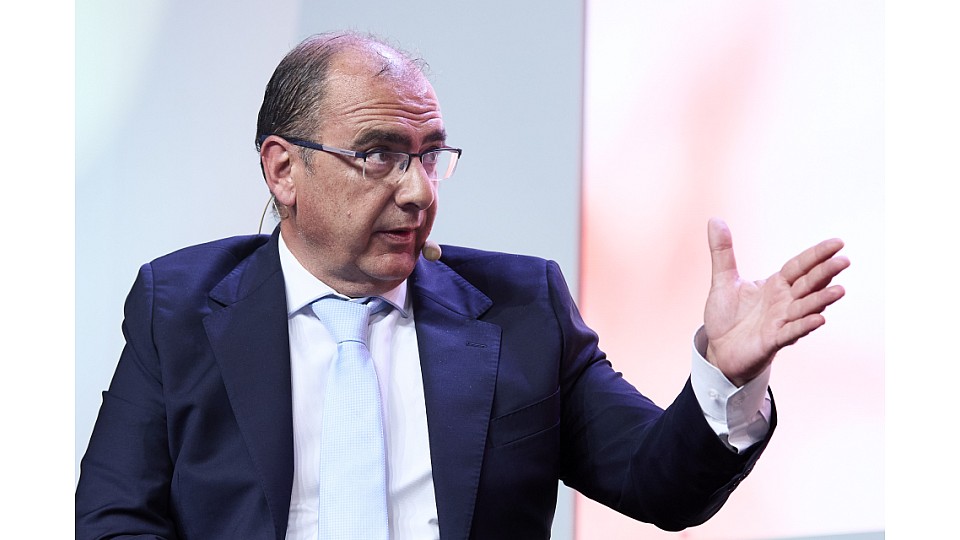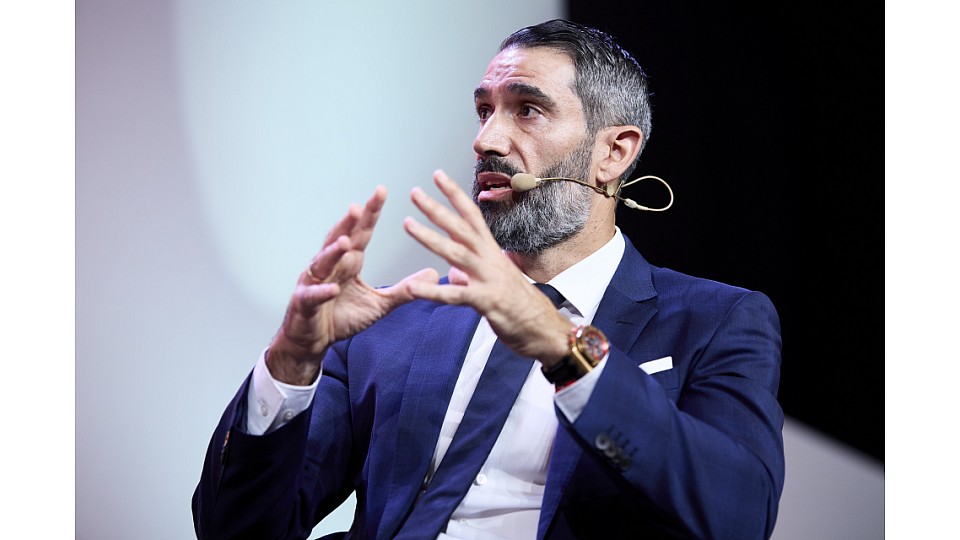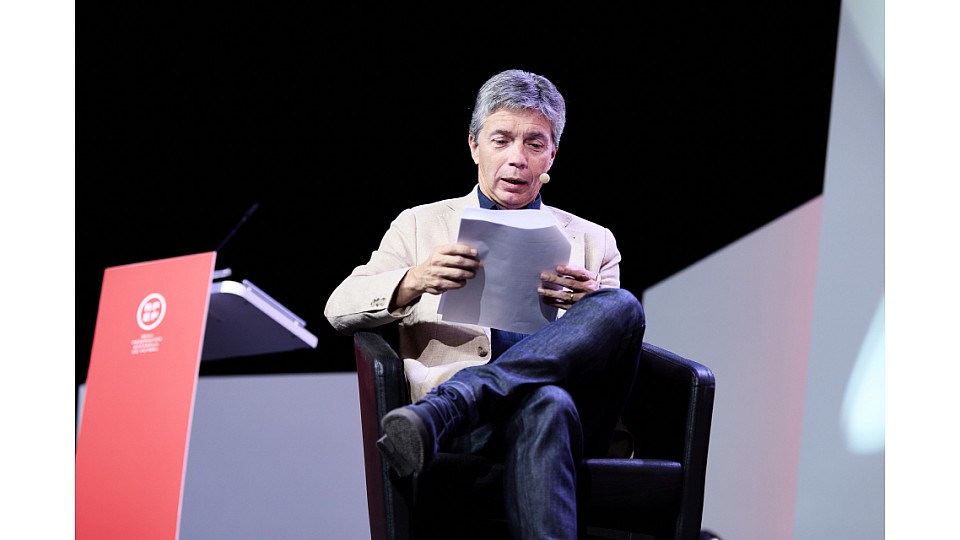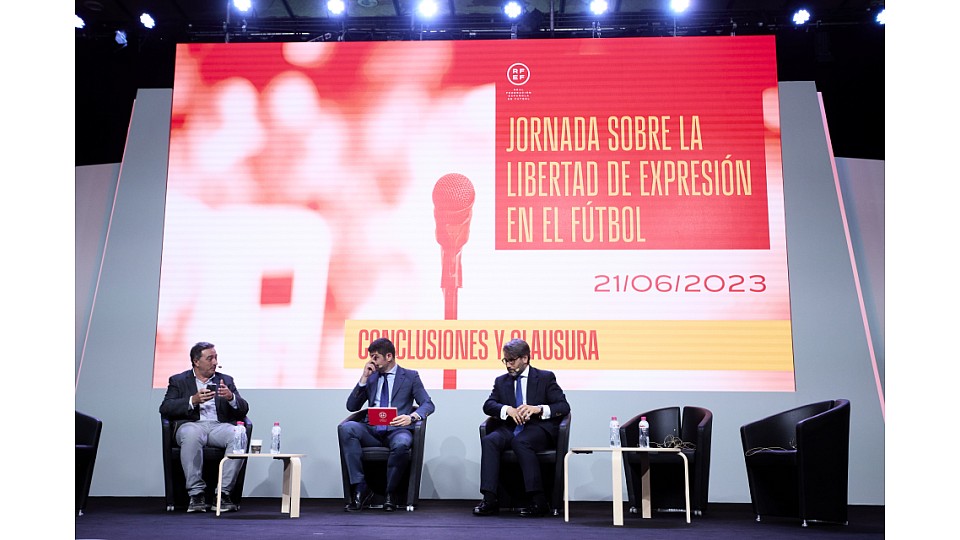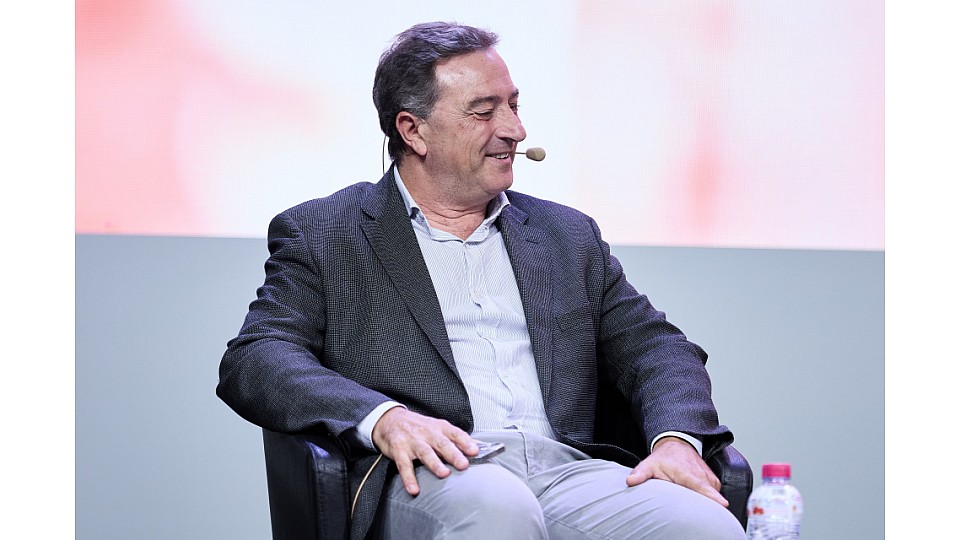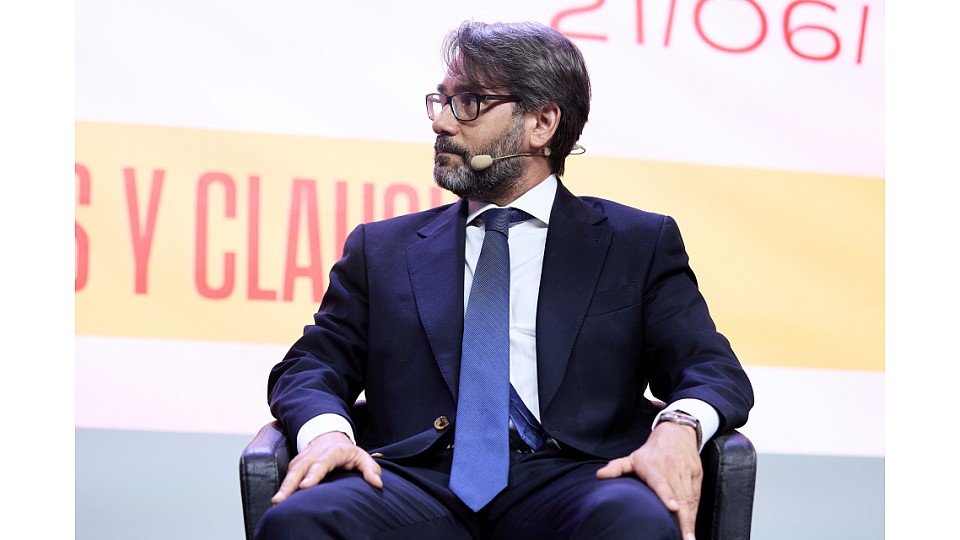Rubiales: "Freedom of speech is not anyone saying whatever they want."
The president of the RFEF inaugurates a historic conference on freedom of speech in football and expresses his desire for the new disciplinary regulations to be "exemplary."
The Ciudad del Fútbol hosted a historic conference on 'Freedom of Speech in Football' this Wednesday: an incredibly interesting session with top jurists and specialists representing all levels of football, where the freedom of speech in the football field was analyzed from both theoretical and practical perspectives. Luis Rubiales, president of the Royal Spanish Football Federation (RFEF), had the honor of inaugurating the conference, making it clear that "freedom of speech is not anyone saying whatever they want"; and expressing his wish for the new disciplinary regulations of the RFEF, pending approval by the Delegate Commission and General Assembly, to be "exemplary."
"There are people who hide behind the generic framework of freedom of speech to justify anything, believing that everyone is subject to any opinion without limits, and that is not freedom of speech," stated the president of the RFEF in his speech at the Luis Aragonés Hall of the Ciudad del Fútbol in Las Rozas. "You cannot say whatever you want, there are limits, and demagoguery should not be done with something so important."
Luis Rubiales highlighted the changes in legislation and the new scenario that is being presented: "In Spain, we had a system that allowed appealing a sanction beyond the federative bodies by resorting to ordinary jurisdiction, and that generates a significant problem for us in terms of time, legal security, and explaining to football-loving people that identical matters are judged in different ways." "This generates tremendous inequality," stated the president, expressing his desire to correct it with the new regulations.
Limits of freedom of speech
After the conference opening, Luis María Cazorla, a State lawyer and one of the pioneers of sports legislation in Spain, delivered the first presentation, providing a legal and sporting perspective on freedom of speech in football.
Cazorla emphasized that freedom of speech must have limits, and the actors in the world of football must be very aware of them. These limits, he pointed out, are determined by the intensity and proportionality of criticisms, their dissemination, or the plurality of recipients, among other aspects. "Highlighting a specific mistake by an individual, for example, a referee, is not the same as making an accusation against the entire refereeing collective," Cazorla pointed out.
Next, a roundtable discussion took place with a group of specialists, including Andreu Camps, Secretary General of the RFEF; Alejandra Domínguez, lawyer and member of the Professional Competition Committee of Women's Football; Toni García, lawyer and Ethics and Discipline Inspector at UEFA; Pedro González, lawyer and Director of Legal Advisory Services at the RFEF; and Alfonso Ramos, State lawyer and member of TAD (Court of Arbitration for Sport). They all presented the applicable legal framework for freedom of speech in football, addressing the objectives, purposes, and legal interests to be protected.
Camps emphasized the importance of preserving values in the world of football, insisting on the significance of the legislative changes in being able to apply the disciplinary regulations forcefully. Alejandra Domínguez explained how the Competition Committee handles certain expressions, and Toni García provided specific examples of cases in which UEFA had to take action. Pedro González highlighted the role of referees, especially in a season where "lines have been crossed," and the panel concluded with Alberto Ramos's intervention.
The perspective of the media
The conference continued with a roundtable discussion titled 'Football Actors and Freedom of Speech: Issues and Solutions,' featuring Juan Ignacio Gallardo, director of the newspaper MARCA; Luis Nieto, deputy director of the newspaper AS; Luis Medina Cantalejo, president of the Technical Committee of Referees; Iraia Iturregui, coach of the Athletic Club Women's team; and Fernando Sanz, Director of International Business Development at the RFEF, who previously was a professional player and president of Málaga CF.
"At the end of matches, it has become fashionable to say, 'I have to remain silent because if I speak, I'll be sanctioned,' but referees don't sanction, we file a report, and if we see that the referee's honorability is being questioned, we forward it to the corresponding committees," stated Luis Medina Cantalejo. "No player or coach has ever been sanctioned for saying that a referee's decisions may have harmed them, but calling a referee a thief is not disrespectful. For example, if a player insults their coach, they get kicked out of the club," he reflected.
"There are different ways of expressing oneself; when making statements, they should be respectful," added coach Iraia Iturregui, before emphasizing the importance of education and raising awareness in transmitting values to players, from grassroots to elite football. Fernando Sanz echoed this sentiment: "It's a matter of education, that's the foundation of everything. The player represents an institution, a city, and must conduct themselves accordingly because if they exhibit bad behavior, it influences the club. We need to promote education and respect for people, but on social media, we see how anonymity gives people the courage to insult and tarnish the image of football and sports."
Juan Ignacio Gallardo, on his part, stressed the "great responsibility" of the media, providing a "critical" view of freedom of speech, "because it helps improve, but it has its limits when it clashes with another fundamental right of individuals and institutions." The director of Marca emphasized, "There are behaviors that would not be accepted in any other sector of society, such as normalizing insults towards referees; there should be fair but strict rules."
Luis Nieto referred to the responsibility of the media in "not fueling certain things." "The immediacy of websites has been a problem because everyone wants to be the first, and sometimes you end up being the first to make a mistake," stated the top official of the newspaper AS.
Conclusions and closing remarks
To conclude the conference, Miguel García Caba, Deputy General Secretary and Director of Integrity at the RFEF, and Salva Gomar, Vice President of the RFEF and President of its Legal Committee, positions he combines with the presidency of the Valencian Community Football Federation, were present.
"Freedom of speech can be summed up in two words: education and respect. Football falls victim to society's problems and must rise above everything; we must be an example above all else, we need to be exemplary," indicated Salva Gomar.
For his part, García Caba stressed the importance of raising awareness, educating, and exercising common sense, while expressing optimism about the upcoming Disciplinary Code because "it will be a tool that provides legal security for everyone. Football has a reach in society that no other activity has; hence, we have that extra burden of having to be exemplary."
The conference was informative and enriching, and it is the first of several to be held to continue transmitting the values of sports in society through football.
